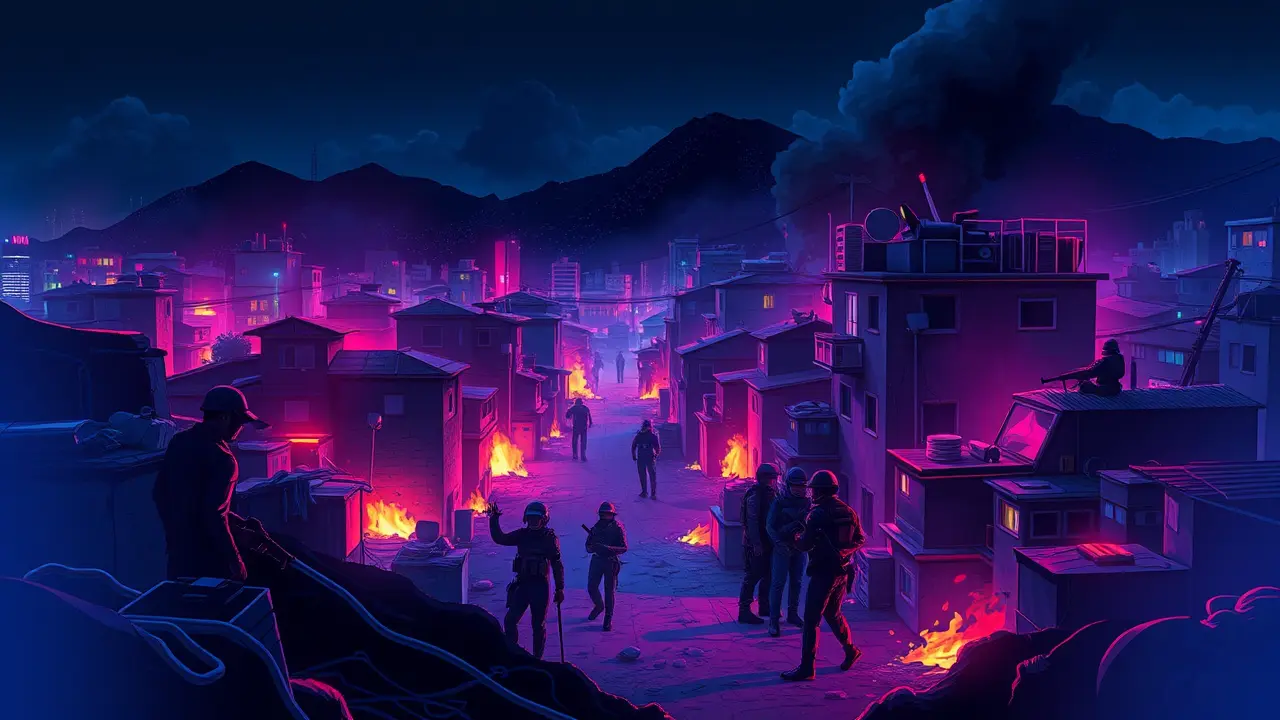
Politicsconflict & defenseMilitary Operations
Deadly Police Raid in Rio Kills Over 60.
EM
Emma Wilson
1 day ago7 min read1 comments
The crackle of gunfire in the impoverished Complexo do Alemão favela this Tuesday morning wasn't just another police operation; it was a massacre, a stark and bloody declaration in Rio de Janeiro's relentless war on organized crime that left at least sixty souls dead in its wake. Governor Cláudio Castro framed the assault as a necessary, coordinated strike against the Comando Vermelho, one of Brazil's most formidable criminal enterprises with tendrils deep into transnational drugs and arms trafficking, but the sheer, staggering body count—one of the deadliest police raids in the city's violent history—immediately sent shockwaves through human rights organizations and laid bare the festering wound of state-sanctioned violence in a nation perpetually teetering on a knife's edge.This isn't an isolated incident but a brutal escalation in a long-running narrative where heavily armed police units, often operating with a 'shoot-first' mandate justified by a public desperate for security, confront drug factions controlling vast urban territories, turning densely populated communities into urban battlefields where residents are caught in a terrifying crossfire. The tactical victory claimed by authorities, the seizure of rifles and drugs, feels hollow when weighed against the human cost, a recurring theme in a country where extrajudicial killings are frequently documented and where the line between law enforcement and paramilitary action becomes dangerously blurred.We must ask, as the world watches, what becomes of a society when the price of public order is paid in the currency of its own citizens' lives, particularly those from the marginalized favelas who have historically borne the brunt of this violence? The international community, from the United Nations to Amnesty International, will undoubtedly scrutinize this operation, questioning the proportionality of force and the adherence to international human rights standards, while domestically, it fuels a polarizing debate pitting a populace terrified of criminal impunity against activists decrying the militarization of public security. The long-term consequences are grimly predictable: a deepening of community distrust in state institutions, a potential catalyst for retaliatory violence from the Comando Vermelho, and another tragic chapter that reinforces Brazil's global reputation for urban conflict, all while the fundamental issues of poverty, inequality, and lack of opportunity that fertilize these criminal organizations remain unaddressed, ensuring that the cycle of bloodshed in the sun-scorched streets of Rio is far from over.
#police operation
#Rio de Janeiro
#organized crime
#Comando Vermelho
#fatalities
#Brazil
#featured
Stay Informed. Act Smarter.
Get weekly highlights, major headlines, and expert insights — then put your knowledge to work in our live prediction markets.
© 2025 Outpoll Service LTD. All rights reserved.